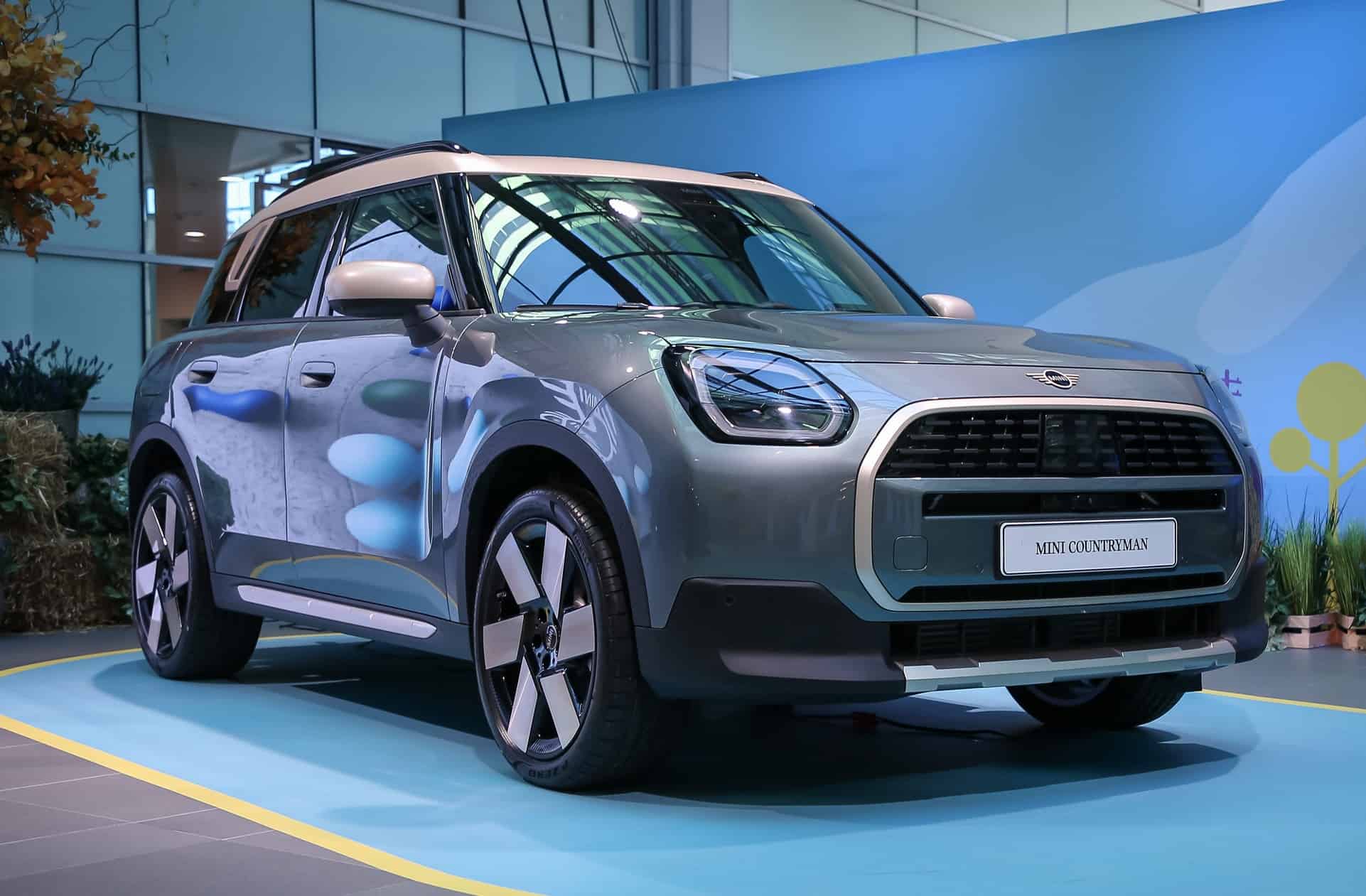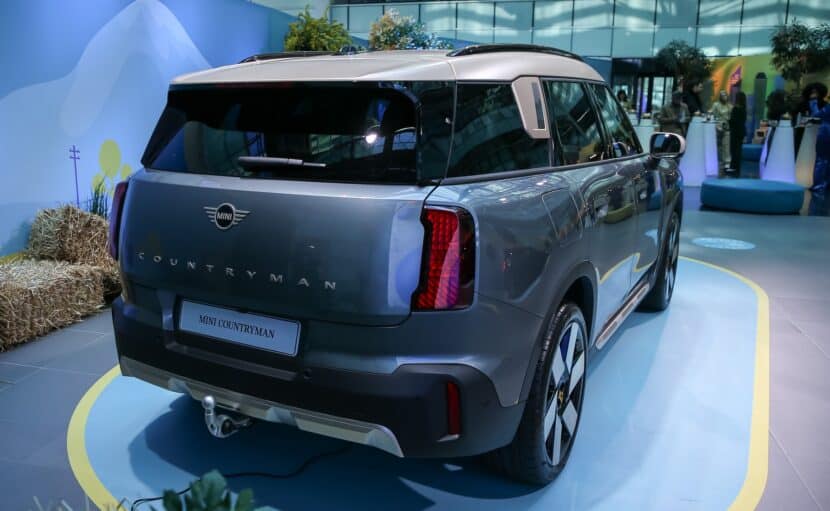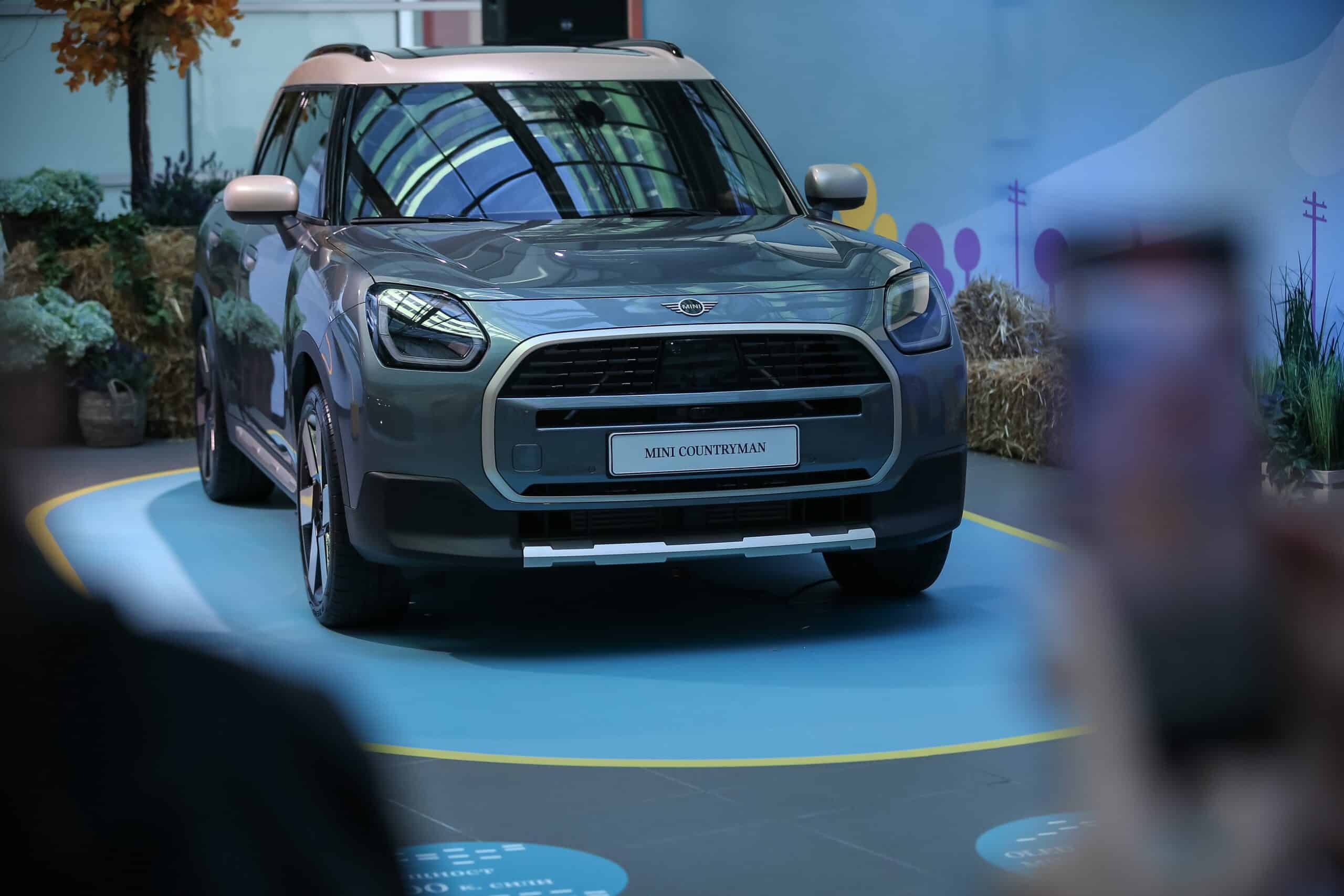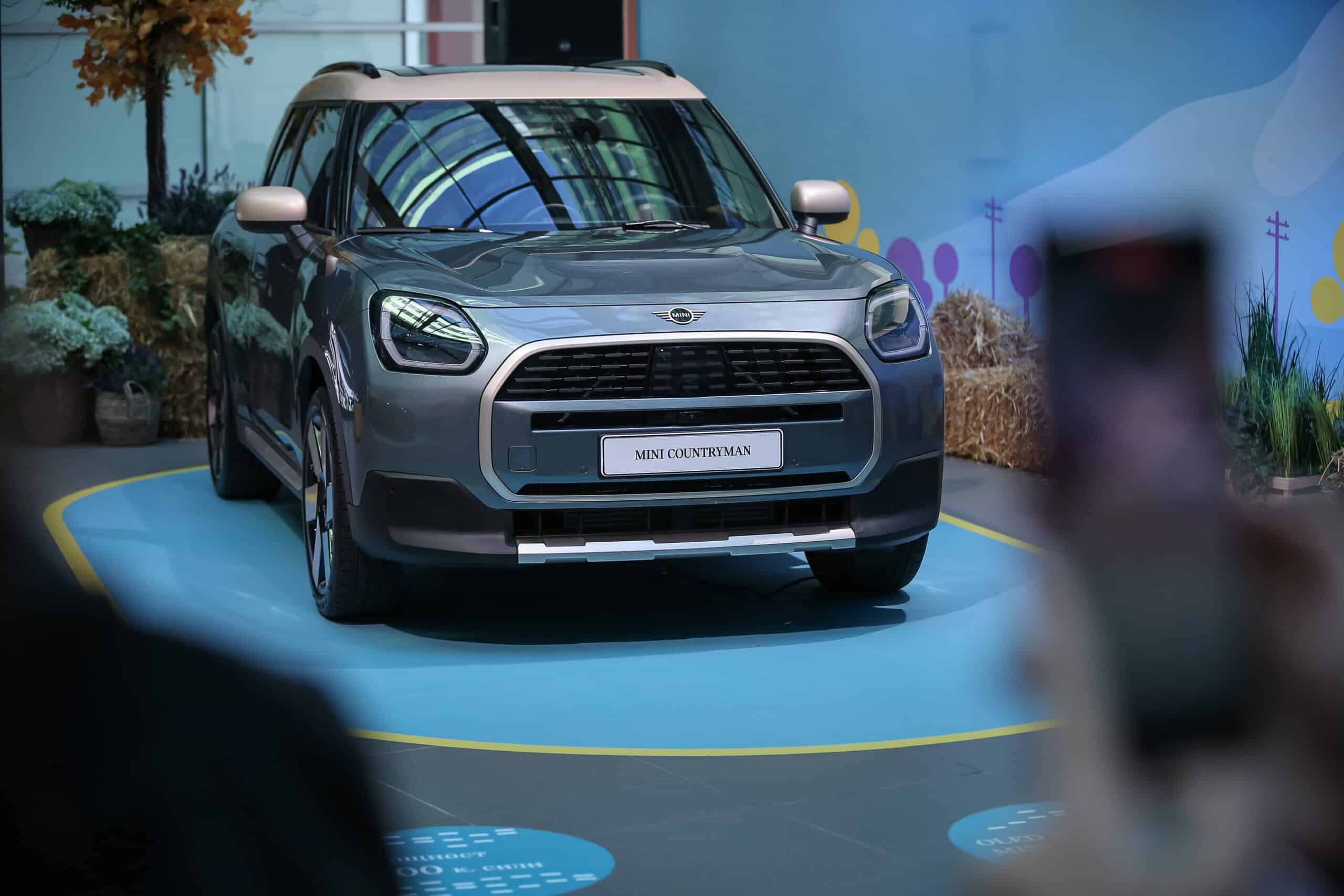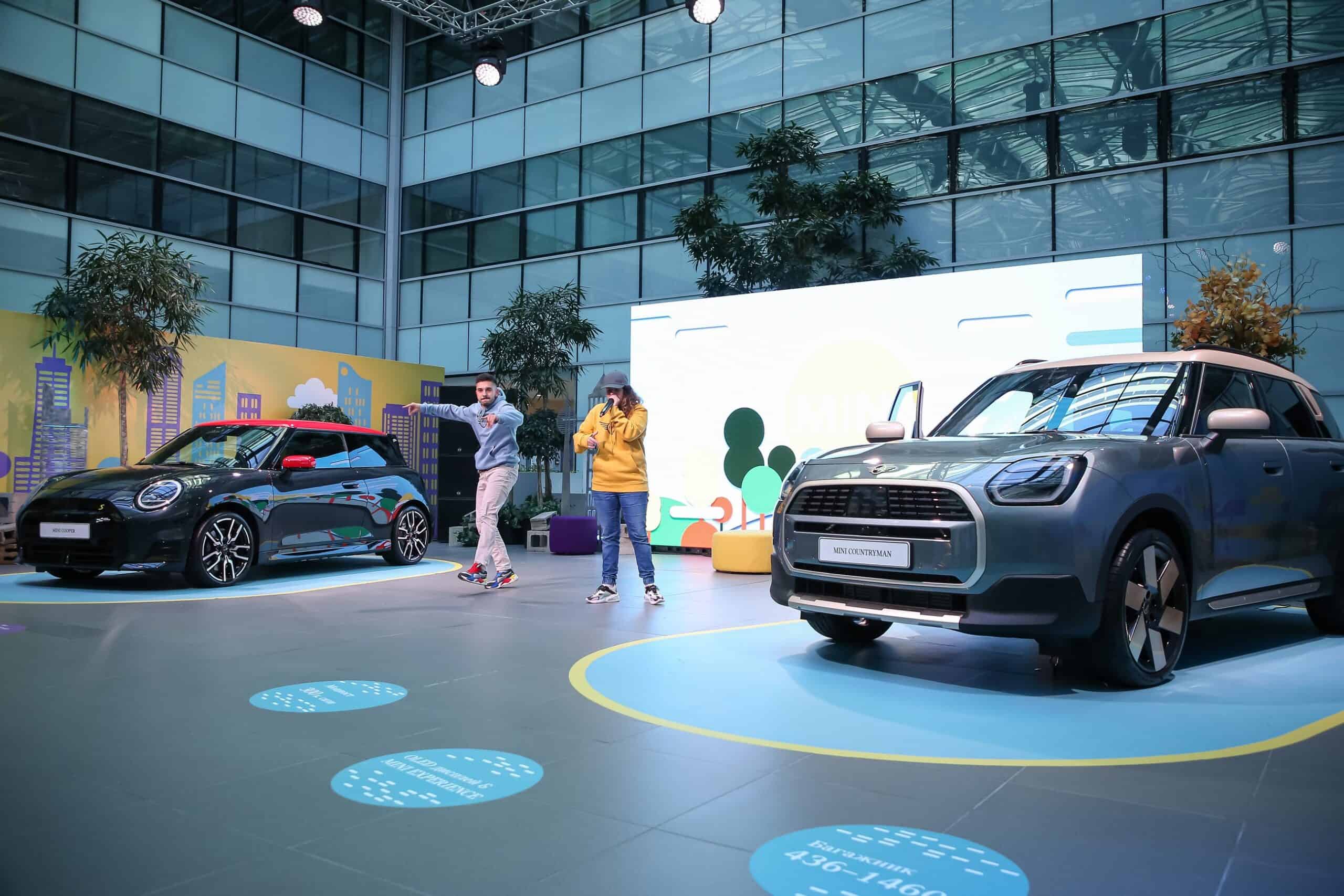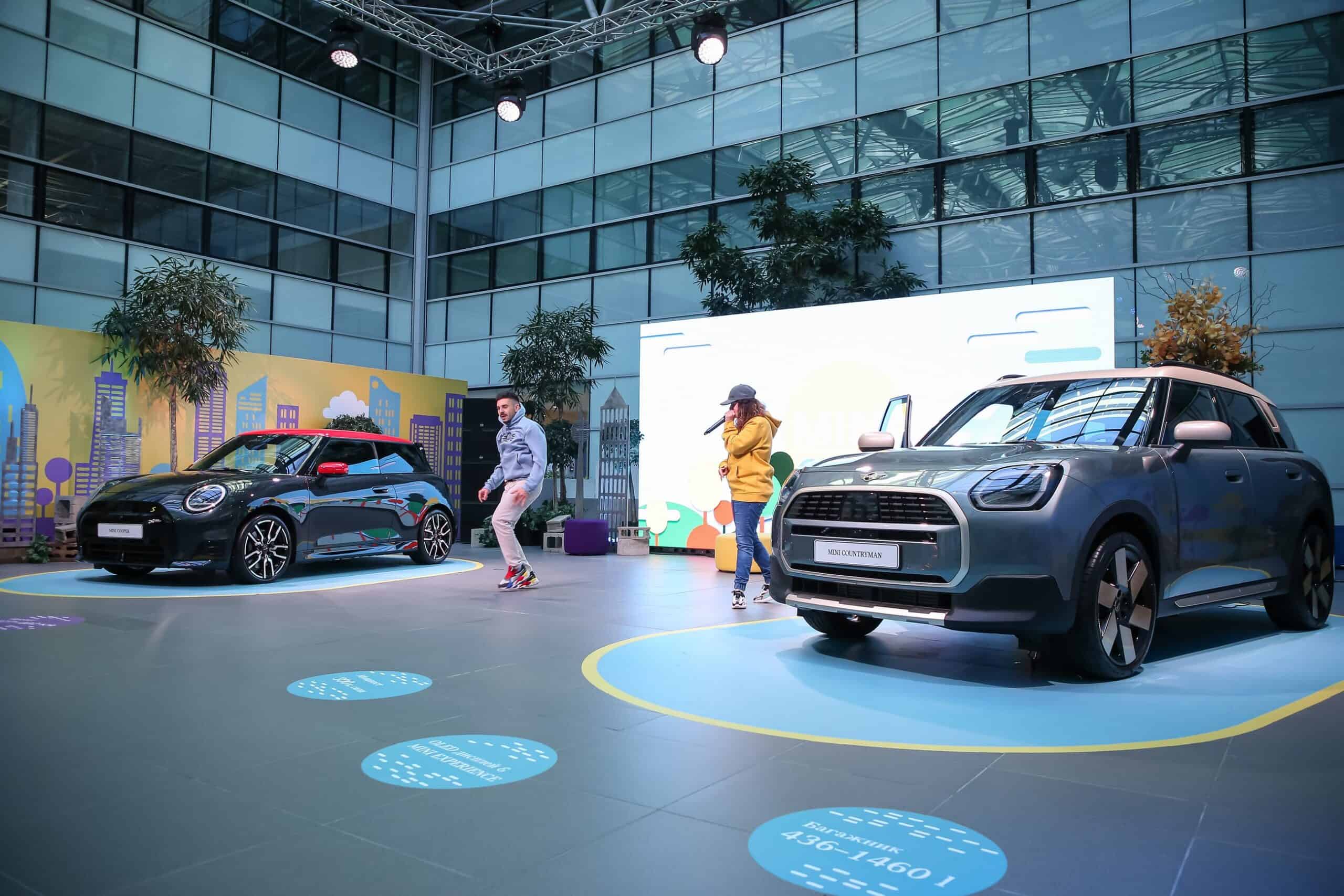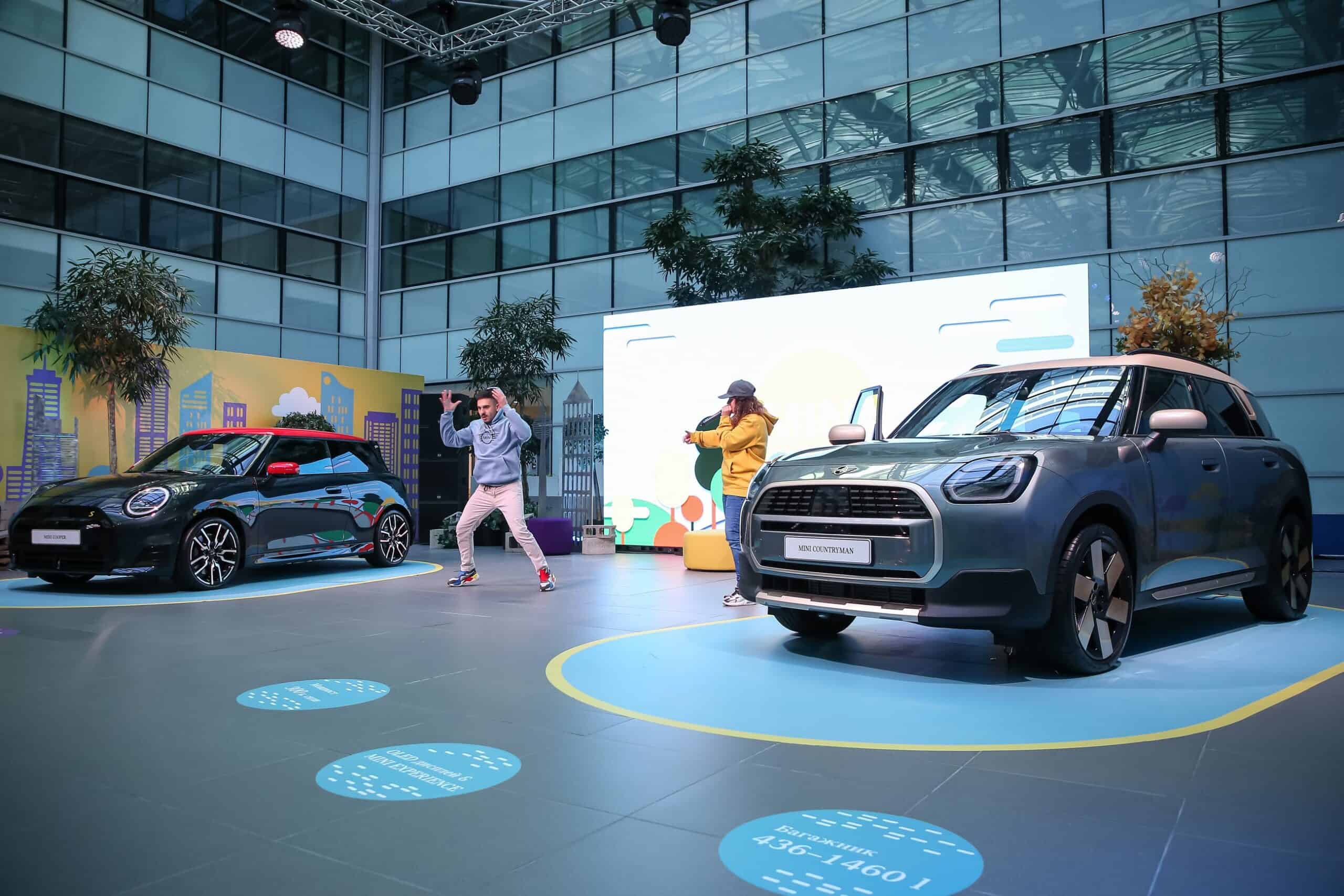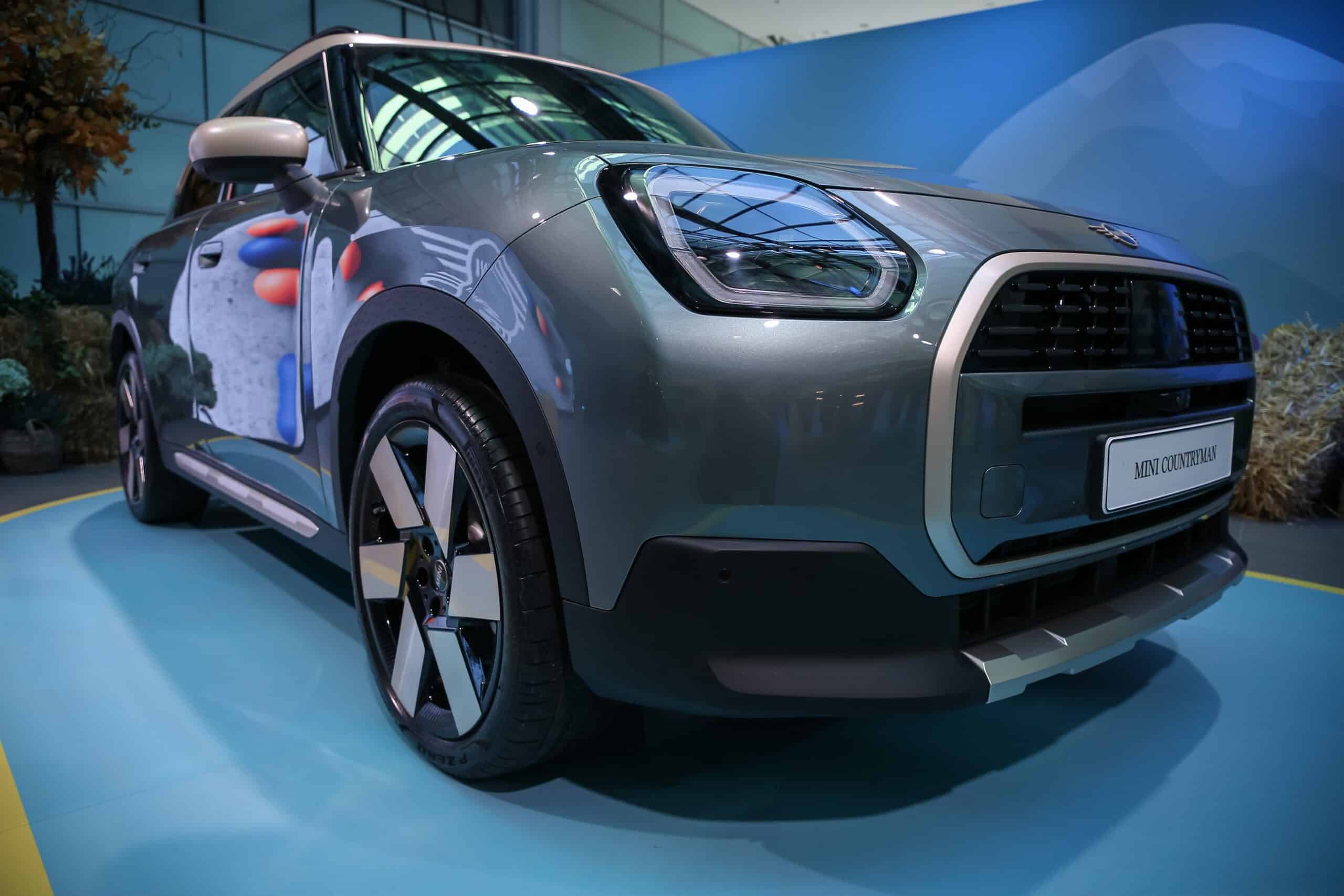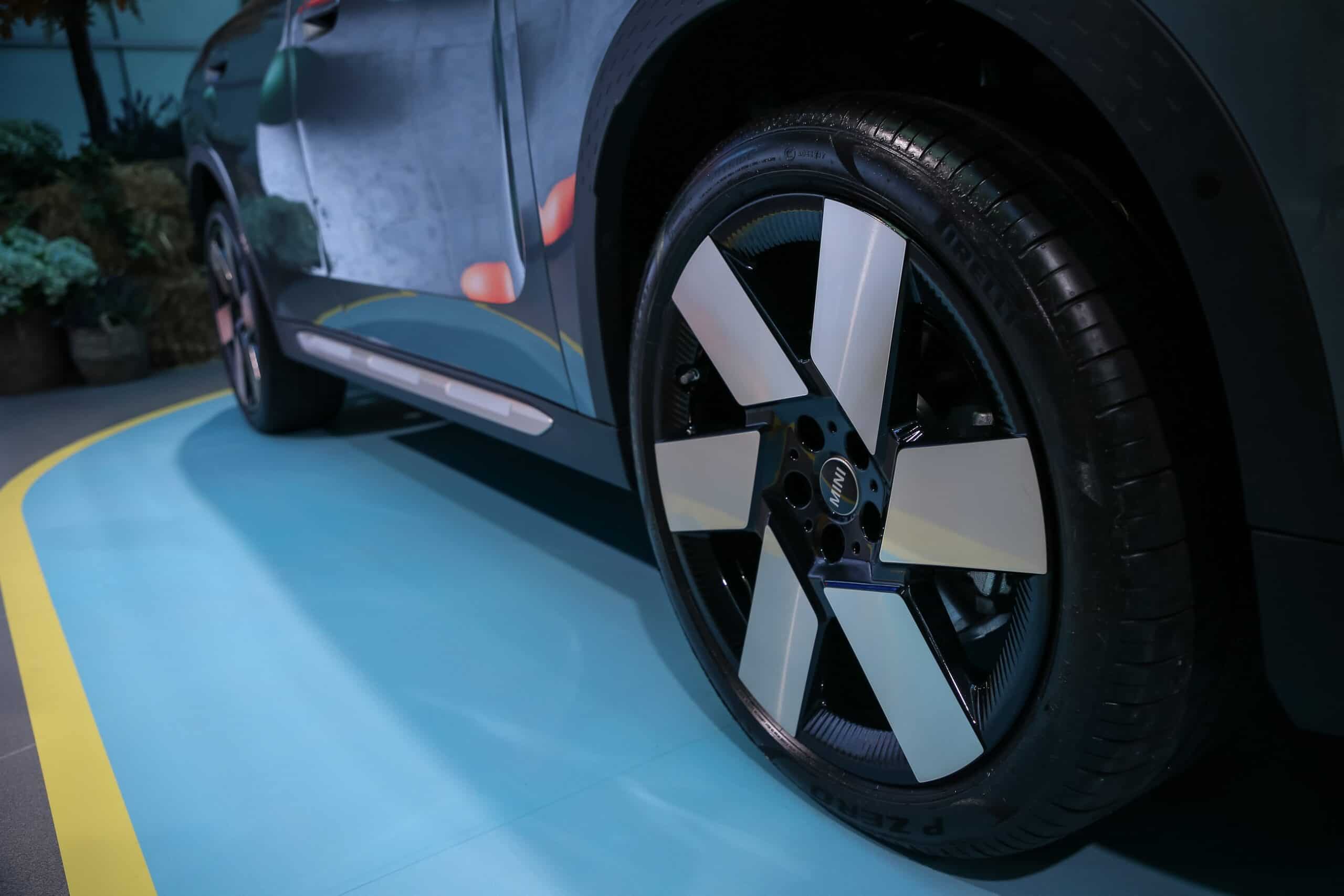Following its world premiere in early September at the IAA Mobility show in Munich, the next-generation MINI Countryman has embarked on a world tour. The revamped crossover has officially touched down in Bulgaria where the automaker’s local division organized a standalone event. It wasn’t all alone as it shared the spotlight with the Cooper three-door hatchback in the John Cooper Works trim level.
Images shot on location allow us to get better acquainted with the 2025 Countryman and rediscover how much bigger the vehicle has gotten over the years. It’s now a MINI only in name since the model has blossomed into a fully-fledged compact crossover. At 4433 mm (174.5 inches) long, 1843 mm (72.5 in) wide, and 1656 mm (65.2 in) tall, with a wheelbase of 2692 mm (106 in), it’s nearly as large as the BMW X1 upon which it’s based.
The interior is vastly different compared to the model it replaces since the new Countryman and Cooper hatchback usher in a minimalist dashboard design. These two models utilize the MINI Operating System 9 with a 9.4-inch OLED circular display and few conventional controls. Subsequent vehicles such as the five-door Cooper hatch, the Aceman subcompact crossover, and a new convertible will adopt the same layout.
Despite being heavily related to its BMW cousin, the new Countryman looks totally different, so much so you wouldn’t be able to tell it’s an X1 underneath the skin. Both are offered as fully electric models alongside gasoline and diesel variants but only the X1 can be had with a plug-in hybrid powertrain. With the third generation (codenamed U25), MINI has decided to drop the previously available PHEV setup.
Aside from looking all-new inside and out, the 2025 Countryman is made at a different plant. The BMW Group has brought the model’s production in-house at the Leipzig plant in Germany instead of continuing to outsource it to the VDL Nedcar company in Born, The Netherlands. Because the contract has not been renewed, the Dutch automotive manufacturing firm announced at the beginning of the month that it would reduce its workforce by 2,000 employees by March 2024. Consequently, only about 450 people will be employed after that date.
Source: BMW Bulgaria


